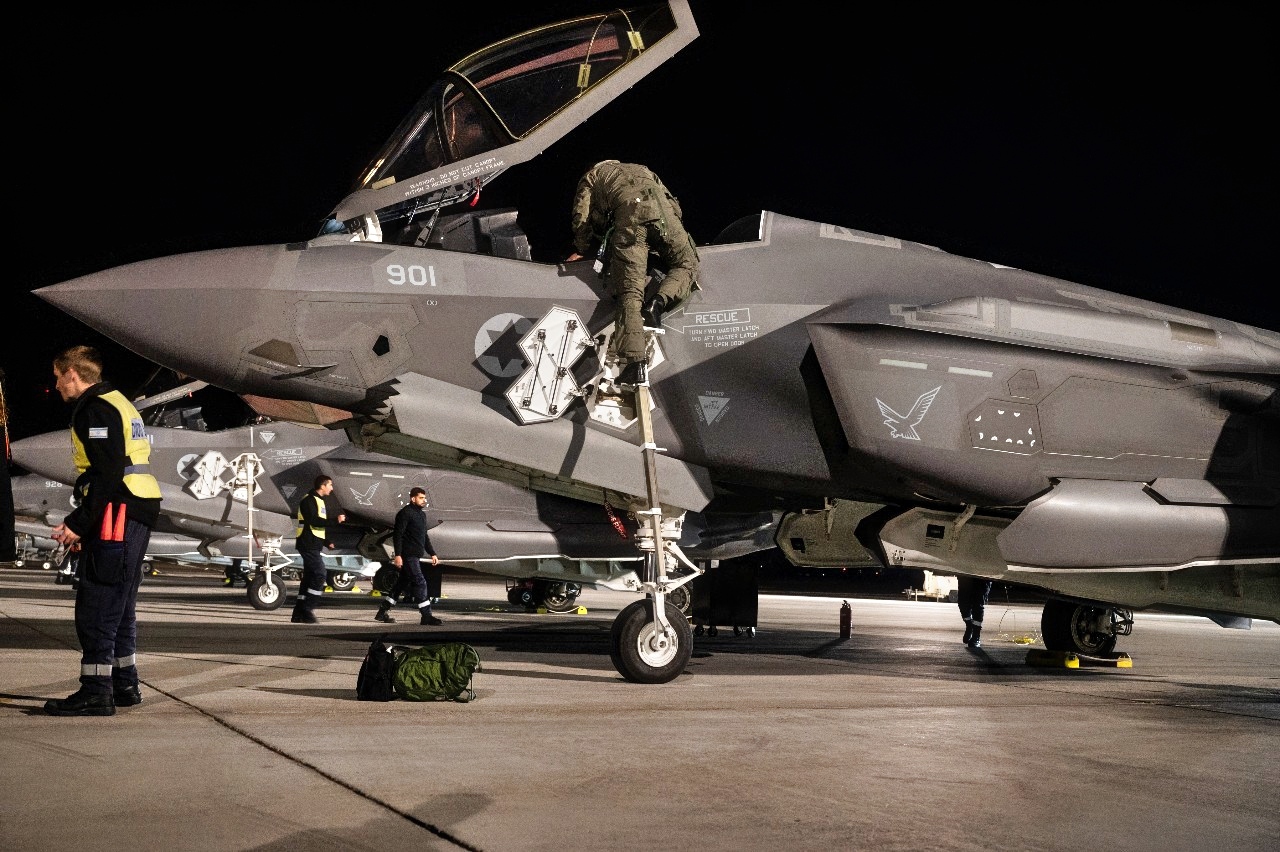Key Points and Summary – Two months after a devastating “12-Day War” with Israel that left its forces “battered,” Iran is conducting major naval drills to project an image of strength.
-This analysis explores the conflict’s “inconclusive” outcome, where all sides—Iran, Israel, and the U.S.—are claiming victory.
-Citing a report from the International Institute for Strategic Studies, the piece argues that while the war weakened Iran’s military capabilities, the attacks may have paradoxically strengthened the regime’s resolve and fostered a new sense of national unity, signaling the start of a “new phase” of hostility.
Iran’s Battered Military Launches a Military Exercise
Iran fought a 12-day war with Israel back in June, which essentially ended after several U.S. military strikes on Iran’s nuclear facilities.
That conflict has left Iran’s military battered, but the country this week launched a series of military exercises.
Reuters reported this week, citing state media, that Iran has resumed military drills.
The exercises entailed Iran “seeking to reassert an image of strength after suffering heavy losses.”
“These drills take place around a month after the Iran-Russia drill under the name Casarex 2025, which took place in Iran’s northern waters (Caspian Sea). The Sustainable Power drills…are in Iran’s southern waters,” state TV said, per Reuters.
“Any new adventure by the enemy will be faced with a strong slap,” the Defence Ministry said in a statement on Thursday, Reuters said.
What the Drills Entailed
According to Tehran Times, the exercises were described as “major Naval drills.”
“A region in the southern-most borders of Iran, located in the northern Indian Ocean and the Sea of Oman, will be the location of the drills,” Vice Admiral Abbas Hassani told the state-run Tehran Times, before the start of the drills. “We carry out drills on a routine basis every year. The scenarios we practice come from higher bodies.”
“Today, we reviewed the scenarios. They include both defensive and offensive tactics. From sinking a warship to intercepting enemy missiles, the Navy of the Islamic Republic of Iran will be getting ready to respond to any threat.”
Learning from the recent war was a key part of the drills, according to the report.
“Iran’s military officials and political leaders have repeatedly stressed in recent weeks that the 12-day war fought with Israel in June could resume at any moment, and that the armed forces have taken note of that possibility. Reports indicate Iran has moved to repair and strengthen its defense systems and plans to deploy its newer generation of weapons should Israel decide to launch another war.”’
According to Israeli media outlet Ynet News, the exercise took place in the northern Indian Ocean and Gulf of Oman, and was described as “Eqtedar 1404.” It was to feature “missile launches, electronic warfare maneuvers, and drone operations.”
What Happened in June
Per Reuters, “Israel largely destroyed Iran’s air defences during the war and much of its stockpile of ballistic weapons is believed to have been damaged by Israeli strikes.” This was followed by the U.S. bombing Iran’s nuclear facilities, although to what degree they were “obliterated,” in President Donald Trump’s words, remains a matter of much uncertainty and contention.
According to an analysis published in late July by the International Institute for Strategic Studies, John Raine looked at how the experience of that war with Israel changed Iran.
“All parties are claiming victory in the ‘12-day war’, which ended on 25 June. United States President Donald Trump, Israeli Prime Minister Benjamin Netanyahu, and the Iranian leadership have all made claims, in their widely different idioms, that they won,” Raine writes.
“But those claims, and Trump’s additional assertion that he will bring peace to the Middle East, require qualification. The strategic outcome of the war is likely to prove inconclusive, bringing neither peace nor an end to military action. It may instead, as previous conflicts have done, simply mark a new phase in the institutional hostility between Iran and Israel.”
While some had predicted that the war with Israel and the U.S. strikes would lead to the collapse of the Iranian regime, that has not happened, and it doesn’t look like it will.
“The Iranian leadership may indeed have unexpectedly benefited from the war: the historic irony of aerial bombardments is that while they weaken an adversary’s capabilities, they can strengthen its resolve. The Iranian people, under fire, found a new, nationalist voice, which the leadership was quick to exploit as an indication of national unity,” Raine writes.
About the Author: Stephen Silver
Stephen Silver is an award-winning journalist, essayist, and film critic, and contributor to the Philadelphia Inquirer, the Jewish Telegraphic Agency, Broad Street Review, and Splice Today. The co-founder of the Philadelphia Film Critics Circle, Stephen lives in suburban Philadelphia with his wife and two sons. For over a decade, Stephen has authored thousands of articles that focus on politics, national security, technology, and the economy. Follow him on X (formerly Twitter) at @StephenSilver, and subscribe to his Substack newsletter.
Military Affairs
China’s Stealth Air Force Has 1 Mission
China’s J-20 Mighty Dragon Is Built for War
The F-22 Raptor Is Getting a Makeover
